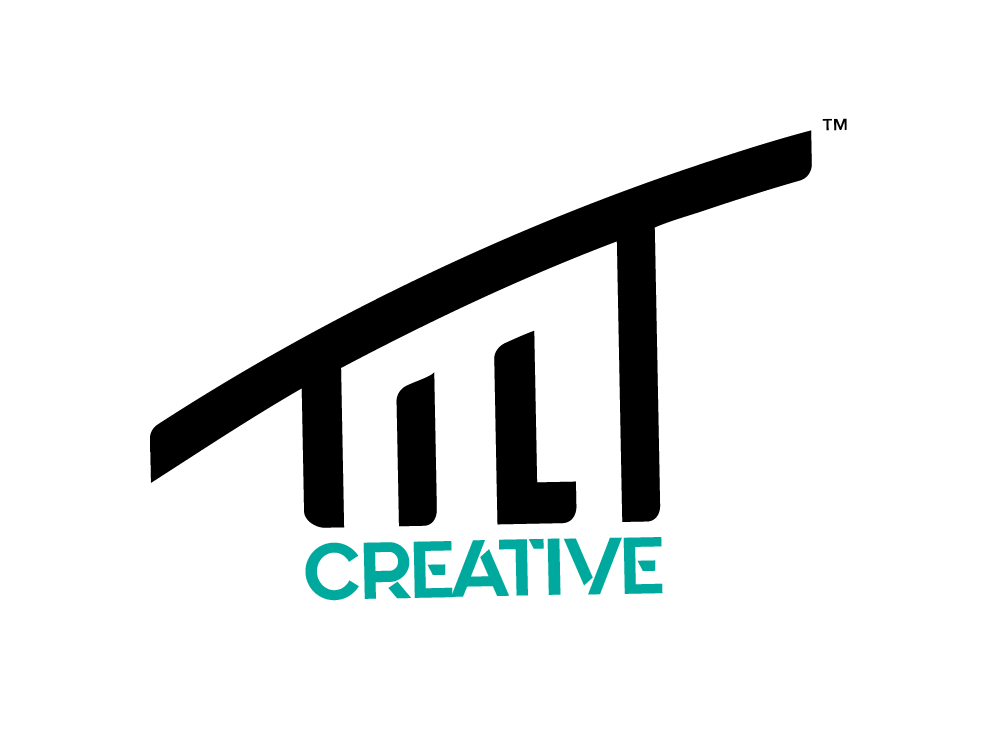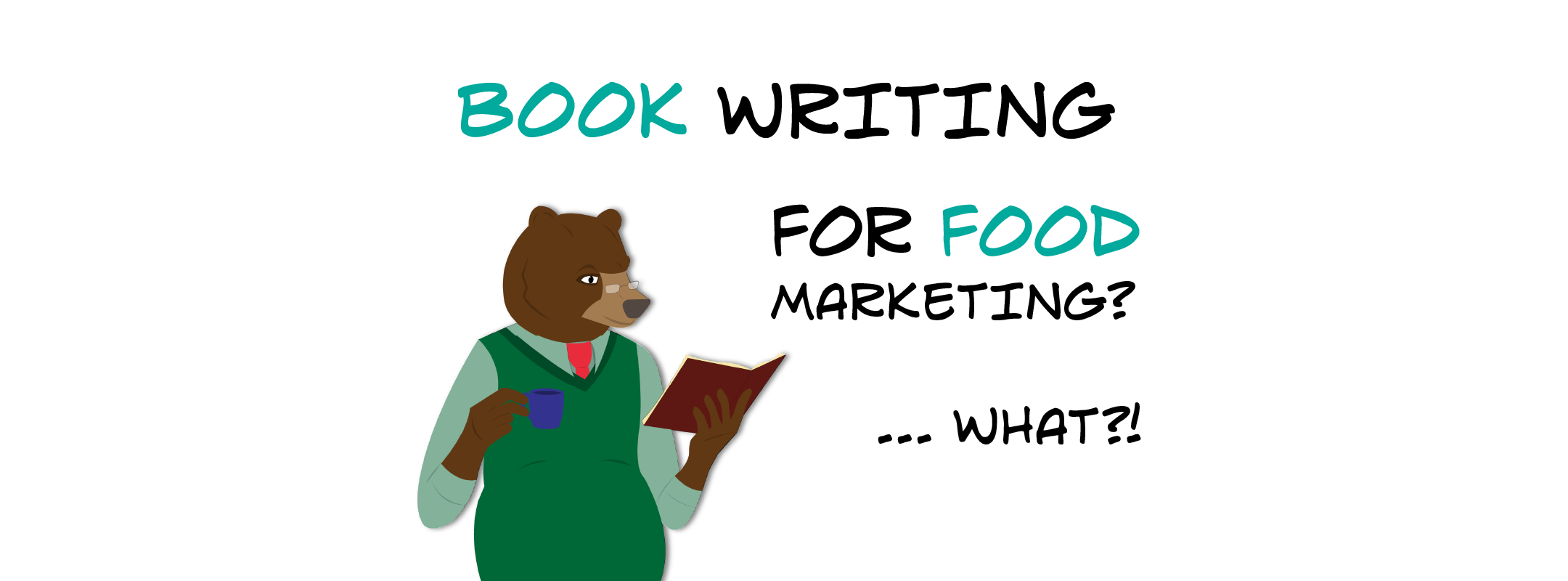Have you ever thought of writing a book for your food company?
We know, it sounds a little crazy and out there, but trust us, it’s worth it!
Food marketing is tricky. The photos have to be absolutely perfect. The copy must “speak” mouthwatering. The lighting has to be soft but warm but not too warm. It can’t look fake, but it can’t really look realistic either. Just take one look at a MacDonald’s burger ad, and you’ll see what I’m talking about. The staging itself is a work of art, and the copy is always spot on. But they are so widespread that their ads don’t even need to include food in it anymore, so they play the marketing game with a different rule book.
What if we told you, that your food brand could literally write the book? Like an actual book of 80,000 words all about your food. Yeah, you probably think we’re crazy, but crazy is why you hire us. We don’t do the normal, boring type of marketing – we’re here for all the crazy.
People love stories. It’s the baseline for much of our communication. The cavemen told stories to pass down important knowledge, and we do the same today. If your child wants to do something, and you don’t want them do, you would tell them a story about the consequences of their actions. When we talk about our experiences, we are storytelling, and the more detail and twists in that story, the more interesting it becomes. Your brand has a story. What story is it telling? What story are other people passing on? Every testimonial is a story. How are you framing that narrative? Who is shaping and moulding that narrative for you?
Here is where the journey gets interesting. This all depends on what type of food company you are. Your food company could be in manufacturing for mass production, a homemade blend that you “modernised” from your great-grandmother, or a restaurant in the middle of the countryside or in the heart of the city. Food is everywhere, and it’s all around us, but there is one thing that unites us all – the soul of food. Most cultures around the world unite around a dining table – Spanish, Greeks, Persians, and Caribbean families. A good pot of soul food can cure any illness, mend any broken heart, and fill endless bellies.
But what about food and marketing? How can a food company get more people to buy into their foods and be creative? Why write a book? How can a book increase sales? Sharing knowledge, expertise and ideas is one way that a book can help you. Let’s say your product is a specially blended tomato based sauce. That sauce can be used in pizza, spaghetti, chilli con carne, and many other dishes; notice that these dishes aren’t particularly connected but you just connected them through your brand of tomato sauce. If you write a recipe book connecting your sauce to 101 different recipes, your product will then be used in a 101 different ways, because you told the consumer how to use it, because you wrote a book on it, therefore you must be a credible source and they trust it. This is how a book can help your food brand.
What kind of books could you write?
Recipe Book: Yes, it’s a food brand so why not a recipe book if it’s a product used in the meal preparation stage? You could also give away a few recipes in a promotion with the highlight being to grab the book. If your product is a niche culture product, like an African or Caribbean based product, why not write a recipe book full of those local recipes which all include your product in them. Customers who are trying to connect with that culture will buy that type of book.
Colouring Book: These are really big right now both for adults and for children. While it might seem gimmicky, the idea of your product being used visually and engaged with plants it in the customer’s subconscious. They will be more likely to use your brand in the future, and children will become future customers as trust and purchasing starts with recognising the brand. People don’t trust what they aren’t familiar with.
How It’s Made Book: What if your company was a beer? Why not walk readers through a magical journey about how your idea started, how the beer was formulated and what it took to get to the final product they enjoy? By building an emotional connection with your customers, they will be less likely to switch products simply because they know your story, they know you, and they have mentally walked in your shoes.
Party Idea Book: Everyone has house parties at some point, and figuring out quick foods to whip up and keep everyone entertained can be hard. While your expertise may be food manufacture, if your food items can be distributed at parties, then why not?
Quick Meal Ideas: After a long day at work, no one wants to spend an hour in the kitchen. What if you could help out a little? Give someone a book of 20 easy to prep foods, with an easy to use shopping list that can give some variety to their diet, without them having to think about it. We all know half the trouble with cooking is figuring out what to cook. Busy people follow these kinds of instructions without massive deviation.
There are millions of books available on the market, and that should tell you something: that people still use them. If book sales were at a continuous decline, people won’t still be publishing them. For your brand, you’re not aiming for the NYT Bestsellers list; you’re aiming for a connection with your customers, which leads to an increase in revenue. And who wouldn’t trust your brand – you’ve written a book about it!
Hire the right person the first time
While we’d love for that person to be us, it’s important that you hire the right person to write your book for your food brand from the beginning. Book development is so much more than just getting words (or pictures!) on paper and meeting a word count. A good writer can weave a story through a book, keeping readers wanting more while subtly selling them your products or services. They would be able to build trust between your customer and your brand before they even speak to you, and that trust determines whether that consumer will purchase or not. There’s a magic to good writing, but no two writers are the same. Some might be great at short form blogging and 140 character tweets, while another might be best suited to 10,000+ word projects.
While it’s tempting to do it in-house or pass it onto an agency that manages your advertising who might do it cheaper, it might not be as effective as the people who really know what they are doing. You wouldn’t go to a doctor for a haircut even though he knows his way around a pair of scissors. Likewise, you have to choose your artists and writers well, for them to be effective for your food company.
About TILT Creative
TILT Creative is a UK based creative agency specialising in content creation and managed solutions for blogs, websites, branding and social media. Désiré, the chief writer and artist behind TILT Creative, has worked with a variety of clients (from startups to luxury brands) across all kinds of industries (such as automotive, beverage, construction, oil and gas, tourism, and health and safety) across the United Kingdom, Dubai and the Caribbean.
TILT’s core philosophy is to change the perspective, or ‘tilt’ it. How can you TILT your business? Could it be a brand refresh, a better experience on your website, or perhaps a stronger blog strategy? Maybe writing a book on your expertise could skyrocket your company’s credibility and revenue?
Désiré’s work quality stems from her ability to infuse your brand’s story with the essence of abstract creativity, and disseminate a unique experience to your customers on an individual level, while meeting your business’ objectives. Her comprehensive research process, attention to detail, and pursuit of perfection embellishes every piece of her work: writing and design. The results are always favourable.
Ready to TILT your business? Find out more at www.TILTcreative.agency or send an email to [email protected].

